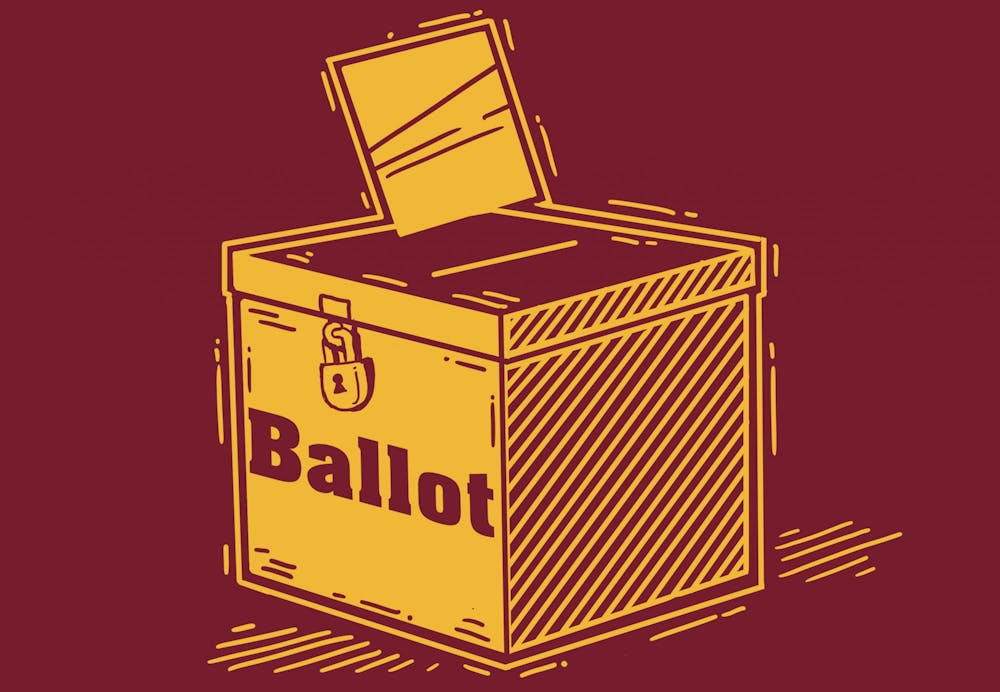As Maricopa County's ballot audit continues, conspiracy theories of an unfair election are being fueled. Arizona is not only lowering voter trust, and potentially affecting outcomes for future elections by doing this, but they are also encouraging other states to follow in their footsteps, to lead these biased audits taking place due to unfounded worries.
The audit began on April 23 after the Arizona Senate was granted custody of Maricopa County's 2.1 million ballots to search for any trace of fraud. One could argue that these complaints are connected to the "Stop the Steal" movement, which promotes a conspiracy theory that argues the election was somehow fraudulent.
This theory continues to be believed by some, even though the ballots were counted multiple times. The most extreme members of the conservative party, including groups like the Proud Boys, have voiced support, hoping the audit could help turn Arizona's 11 electoral votes from President Joe Biden to former President Donald Trump.
The audit is being done by the private Florida-based technology company Cyber Ninjas, which has received backlash the past few months for its credibility since it has never conducted an audit. Even some Republicans, including ASU College Republicans President Joe Pitts, said there are issues with how the audit is being handled.
"I think there are genuine questions about the validity of the election that can't be pushed to the side," said Pitts, a junior studying management. "The election wasn't rigged, but you can't ignore these people. You need to answer these questions."
Pitts sided with the reality that even if this audit finds Trump received more votes over Biden in Maricopa County, it won't change the outcome of the results, since 270 electoral votes would be needed. Biden won 306 electoral votes, and Trump won 232. Biden still would have won even without Arizona's 11 votes.
Arizona’s audit has also encouraged other battleground states, including Pennsylvania, to reevaluate their own elections. While there is nothing wrong with ensuring that a voting system is secure, it makes no sense for these investigations to be partisan. Trump, however, had been speaking of the idea of a rigged election before it took place, planting the seeds of doubt in the minds of his supporters.
Following Trump's "stolen election" rhetoric, new voting bills in state legislatures across the nation have been appearing, including in Arizona.
One bill, which was signed into law by Arizona Gov. Doug Ducey, requires that voters who signed up for what was formally known as the permanent early voting list must mail in their ballots in both the primary and general election for two consecutive election cycles in order to remain on the list. If not, they will not receive an early mail-in ballot in the following election.
While proponents for the new law say it will purge non-active voters, progressive activists argue this is just one more hurdle for voters who may innocently miss voting in some elections.
"You would think that with record turnout and more people voting that the Arizona Senate would want to make it easier to vote, but they're making it harder," said ASU Young Democrats President Cameron Adams, a senior studying global studies.
One worry is that if people believe that the election system is unfair, they will be less likely to vote. According to a 2020 Pew Research Center poll, just under half of surveyed voters between the ages of 18-29 feel very confident in the current vote count if they voted in person, and the percentage is even smaller for those who voted by mail.
ASU Tempe students voted at an 11% higher rate in the 2016 general election compared to 2012's, and it is an energy that must be sustained. This may not be possible if students begin to doubt the power of their ballot. This may be the result of the election audit.
Reach the columnist at htenore@asu.edu or follow @haleyyhmt on Twitter.
Editor's note: The opinions presented in this column are the author's and do not imply any endorsement from The State Press or its editors.
Want to join the conversation? Send an email to opiniondesk.statepress@gmail.com. Keep letters under 500 words and be sure to include your university affiliation. Anonymity will not be granted.
Like The State Press on Facebook and follow @statepress on Twitter.
Continue supporting student journalism and donate to The State Press today.

Haley Tenore is the editor of the State Press Opinion Desk. Tenore is also a digital reporter for Cronkite News and a co-president of the Accessibility Coalition. This is her fourth semester on the opinion desk and second semester as editor.




